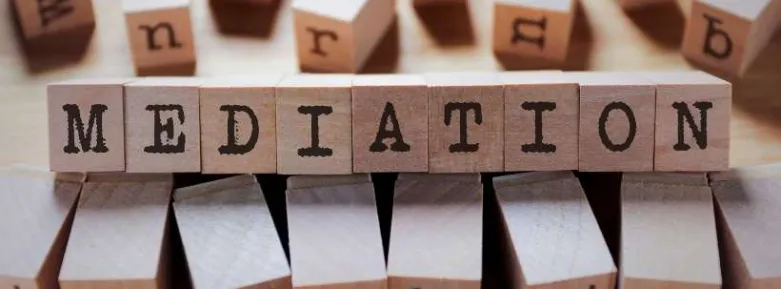What Are My Career Options in Mediation?

As more legislation and judges encourage the directing of disputes towards mediation, the industry is invariably growing. Mediation helps people who don't see eye to eye to sort out their differences as quickly as possible - saving time, money and stress. Rapid and informal resolution is far more preferable to costly and lengthy court cases or employment tribunals.
What is Mediation?
Mediation is a form of dispute resolution where an independent, impartial person helps two or more people reach a solution that’s acceptable to everyone.
Mediators do not make judgments or determine outcomes - they ask questions that help to uncover underlying problems, assist the parties to understand the issues and help them to clarify the options for resolving their difference or dispute.
Special Purpose Award in Mediation
Griffith College offers a Special Purpose Award Certificate in Mediation, from its Cork and Dublin campuses.
Our Certificate in Mediation is unique in that it is validated by QQI at Level 8 on the National Framework of Qualifications (NFQ) and also recognised by the Mediators Institute of Ireland (MII) and the Irish Professional Mediators’ Organisation (IPMO) - meaning graduates of this programme may apply to either or both organisations to be certified to practice.
By providing learners with an in-depth understanding of the concepts and methods underlying the development and use of mediation, this programme seeks to actualise their ability to implement practical skills. The robust nature of a qualification in mediation will give a graduate a unique set of skills and advantages when looking for employment.
A further aim of the programme is to demystify the law around mediation so that the learner may confidently embark upon a career involving the use of mediation. This involves developing the learners´ familiarity with and understanding of ethical considerations in the field of mediation and cultivating their ability to discerningly evaluate the ethical code of practice of one organisation of mediators vis-à-vis another.
The course runs part-time via blended learning which involves a combination of both online and in-class teaching and learning. This reduces interference with other life commitments and gives the learner autonomy over their learning schedule.
Lecturers are experienced mediators, academics and conflict management trainers with many years’ experience in both practice and training.
What are my career options in Mediation?
There are lots of opportunities for mediators. The knowledge, skills and competencies developed in the Certificate in Mediation are transferable to both further studies and practice. This is not confined to the area of Law and Dispute Resolution but can transfer into Business, Social Studies, Community Affairs, Human Resources, Management and across any area of life where conflict may arise.
Graduates will have a range of skills that will be attractive across many sectors as a result of acquired skills such as critical thinking and evaluation, ability to self-manage and self-evaluate, independent learning, conflict management, communication, active listening and mediation.
What are the key skills of a good Mediator?
An effective mediator takes a sensitive and intense situation and works to defuse the participants’ emotions by speaking in a way that both sides understand and respect. Some of the key skills and qualities required are:
- Knowledge of the Area of the Dispute
- Listening Skills
- Patience
- Impartiality
- Empathy
- Analytical and creative problem solving skills
- Trust
- Tenacity